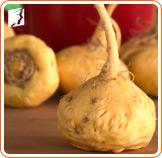Most women going through menopause blame unbalanced estrogen levels for their unpleasant symptoms like mood swings, vaginal dryness, and hot flashes. But while steadily declining estrogen production plays a large role in menopause, few understand the substantial impact of progesterone imbalance during this transition.
Fortunately, there are plenty of accessible and relatively inexpensive ways to help keep progesterone balanced during menopause years. Keep reading for three easy tips.
Exercise

Exercise isn't always fun, but it is an essential factor in keeping your body fit and healthy, and it becomes especially important during times of hormonal imbalance. Making sure that you are active for at least half an hour each day can have a very positive effect on symptoms of imbalanced progesterone. These symptoms can include things such as increased stress, anxiety, and abdominal weight gain. By beginning a regular exercise routine and sticking with it, you can help keep your progesterone levels from becoming unbalanced.
Eat Healthfully

Many women going through menopause might feel more of an impulse to reach for a chocolate bar than a bag of carrots. However, you should try to limit yourself to occasional treats, as keeping a balanced diet can do more to alleviate hormonal symptoms than most people realize. If your body is fueled by healthy foods, it runs more efficiently and effectively. Try cutting down on red meats, fats, and refined sugar while increasing your intake of grains, vegetables, and lean proteins, such as soy products.
Alternative Medicine

While many alternative medicines that have not been as rigorously tested as their mainstream counterparts, women have reported positive results from herbs such as black cohosh, dong quai, and red clover. However, these herbs contain phytoestrogens, which affect estrogen levels rather than progesterone levels. Instead, hormone-regulating herbal supplements work to naturally boost hormone production without the side effects of synthetic prescriptions. This makes hormone-regulating natural supplements a popular alternative to prescribed medications.
Recommendation
Of course, before embarking on any significant lifestyle change, be sure to consult a qualified medical professional. A doctor can help you to find alternatives to prescribed medications that you may not have considered and that may turn out to be better options for you.
Want to know more? Click on the following link to learn about how to manage common symptoms related to menopause.
Sources
- Love, S. (2003). Menopause and Hormone Book. New York: Three Rivers Press.
- Office on Women's Health. (2012). Menopause and menopause treatments fact sheet. Retrieved January 8, 2016, from http://www.womenshealth.gov/publications/our-publications/fact-sheet/menopause-treatment.html



